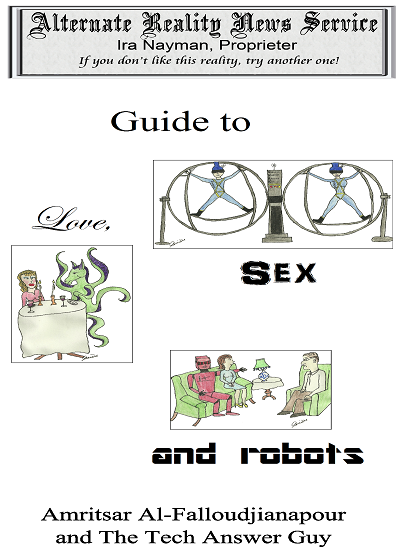Dear Amritsar,
What is love?
Mel N. Colea
PS: No, seriously.
Hey, Babe,
They say that Arctic peoples have 27 words for snow. This is, in fact, untrue: they only have three words for snow. As it happens, each word is 17 syllables long, and variable pronunciations and indifferent lexicographers have, over time, made it seem like there were many more.
Love is a four letter word, so you might reasonably expect that there aren’t too many ways to pronounce it. You have clearly never attended a United Nations debate. Still, counter-intuitive though it may be, according to a study by researchers at the Poynter Sisters Institute, there are at least 7,327 distinct meanings for the word love in the English language.
According to the study, called
- loove: love of traditional pets (ie: cats, dogs, rhesus monkeys)
- luhve: love of concrete
- looove: love of edible objects smaller than a Volkswagen beetle’s glove compartment
- lurve: love of indie bands before they sell 100,000 albums or have a top ten hit (whichever comes first)
- luurve: love of non-traditional pets (dolphins, Komodo dragons, Reese’s Pieces)
- duhve: love of soap
- (lo) 2(ve)3: love of alternate realities
- luuurve: love of edible objects between the size of a Volkswagen beetle’s glove compartment and a Volkswagen beetle
- lovie: love of parts of the body you don’t know the name of
- luves: love of baby diapers
- loooove: love of people who aspire to mediocrity
- lve: love of special characters (except for ampersands and closed diagonal brackets)
- luuurve: the love of a woman for blowing raspberries into the toes of newborn babies.
- love (pronounced l-ohve): love of the concept of technological determinism
- loive: love of fairies, elves and pookahs
- lovoid: love of curved surfaces
- lovey: love of edible objects larger than a Volkswagen beetle
- lovana: love of creepy pets (buzzards, black widow spiders, Anton Corbijn)
- lovov: love of bulleted lists
Of course, everybody believes that their form of love is the purest, most profound expression of the emotion there is. But, really, who is to say that love of slats (louver) is superior in any way to love of fine art that you don’t personally understand but feel deeply attached to because it seems like the thing to do (louvre)? Except, of course, for the love of aardvarks’ eyebrows (lolove), which all reasonable people believe is icky.
Belief in the superiority of one’s form of love leads to odd fracturing along geographic and temporal lines. For example, people who love American Supreme Court decisions before 1950 (lovve) cannot understand the passion of people who love Canadian Supreme Court decisions before 1950 (lovvve). Not only that, but neither of those groups has any respect for people who love American Supreme Court decisions since 1950 (vlove).
As if this wasn’t confusing enough, the way Folger, Nescafe, et al conceive it, the same term can actually mean different things in different places. The word vloove, for instance, means the love of Spanish diacritical marks in the northern United States, the love of horseradish in the southern United States, the love of hourglasses with women’s figures in northern England, the love of the worm at the bottom of the bottle in southern England and the love of personal mixed tapes in Poland. People who live in these areas are convinced that their use of the word is the only correct one. Families have split. Wars have been started. Academics have made tenure over the issue, and lesser people have been broken by it.
Given the huge number of ways in which the word is used, when you ask: “What is love?” I in turn have to ask: “Could you be more specific?”
Dear Amritsar,
I think it would be best if I joined a monastery.
Mel N. Colea
Hey, Babe,
Good move. You’ll only be tempted by 57 different varieties of love there!
Send your relationship problems to the Alternate Reality News Service’s sex, love and technology columnist at questions@lespagesauxfolles.ca. Amritsar Al-Falloudjianapour is not a trained therapist, but she does know a lot of stuff. AMRITSAR SAYS: Howard Jones may have been no Wittgenstein, but, to be fair, old Wittie didn’t perform at Live Aid, so, umm…there.


